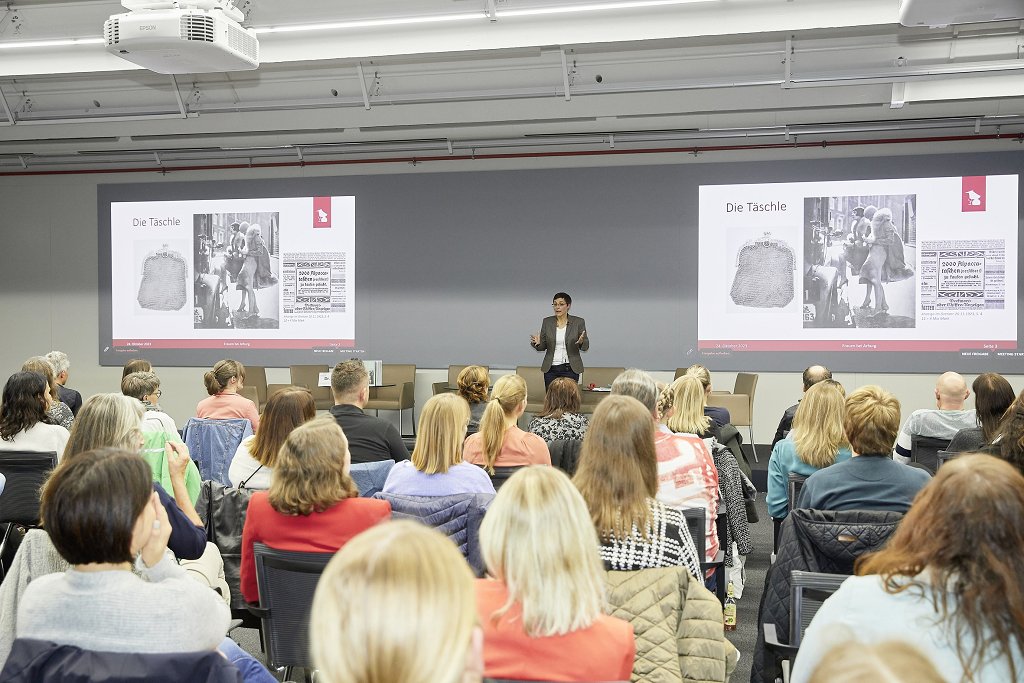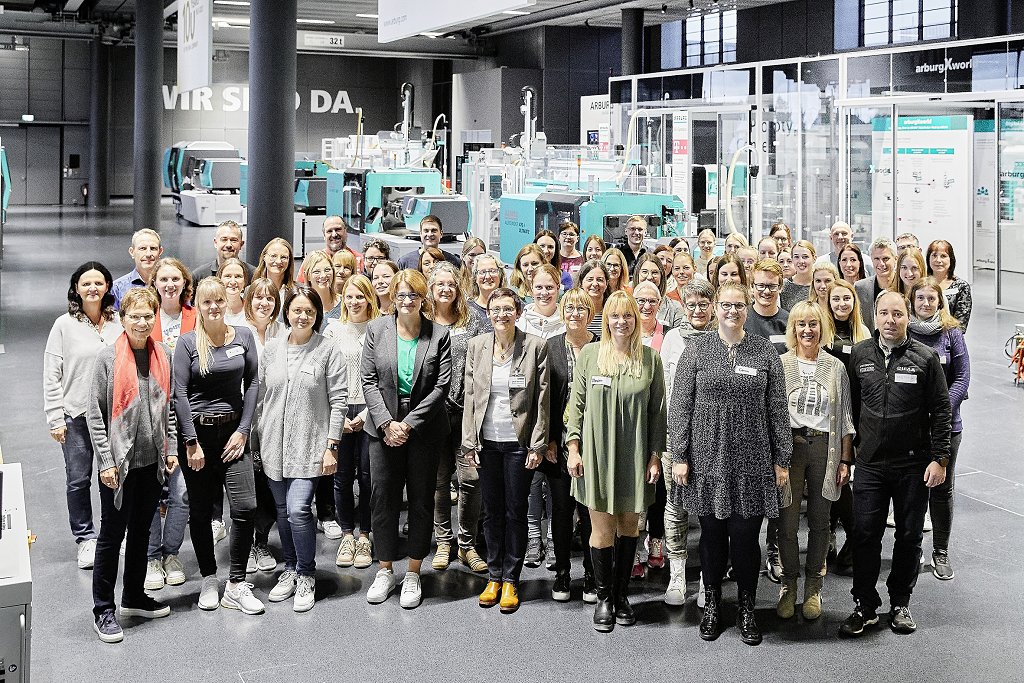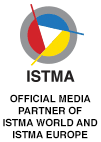Women power at Arburg!
06.11.2023
• After-work special: "Yesterday, today, tomorrow – the role of women at Arburg"
• Huge interest in company-wide network "Women@Arburg"
• Around one fifth of the Arburg workforce are women
 Guests listened with interest to Dr. Sabine Kob's talk about the 100-year history of the Hehl family business and the important role that women have always played in it.
Guests listened with interest to Dr. Sabine Kob's talk about the 100-year history of the Hehl family business and the important role that women have always played in it.
First listen, then have your say: What was and is the role of women at Arburg and what will be their role in the future? The programme included informative and in-depth lectures by historian Dr Sabine Kob and Arburg archivist Katharina Depner as well as an engaging panel discussion. This fascinating topic attracted around 60 employees and the two Arburg Managing Partners Juliane Hehl and Renate Keinath to the "Frauen@Arburg" network event at the company headquarters in Lossburg on 24 October 2023.
 Around 60 participants attended the after-work special of the women's network "Frauen@arburg" on 24 October 2023. The picture on the left shows the two Managing Partners Juliane Hehl (on the outside) and Renate Keinath.
Around 60 participants attended the after-work special of the women's network "Frauen@arburg" on 24 October 2023. The picture on the left shows the two Managing Partners Juliane Hehl (on the outside) and Renate Keinath.
The moderator for the evening was Lea Kicherer from Global Key Account Management, one of the organisers of the Arburg Women's Network. The topic was the role of women at Arburg in the past, present and future.
A look back at 100 years of women at Arburg
Dr. Sabine Kob, author of the anniversary book " History of the Hehl Family Business 1923 – 2023", highlighted the important role of Maria Hehl, among others, in her presentation. From the very beginning in 1923, the wife of company founder Arthur Hehl was not only his staunchest supporter but also the driving force behind the company's successful development. However, the many women who worked in production during the Second World War were also significant. A pioneering innovation: the first female toolmaker began her training at Arburg in 1954.
Figures, data, facts about the present
This was complemented by the remarks of Arburg company archivist Katharina Depner, who was able to prove with many figures, data and facts how the proportion of women in training cohorts has levelled off at around 20 per cent in the present day. In the 1980s, it peaked at around 30 per cent. In this context, the proportion of trainees almost always coincides with the proportion of women in the total workforce. Incidentally, the formation of a women's network is by no means a new "invention". It existed beforehand. As did exceptionally clever and inventive women. The establishment of the IT department in the 1970s, for example, was largely thanks to a woman at Arburg.
What will the future look like for women at Arburg?
The subsequent panel discussion, chaired by Miriam Lauble from Business Development, one of the founders of the women's network, was particularly lively. The six guests from the areas of production, sales, human resources and development – including three men – took part in engaging discussions about topics such as flexibility in the workplace, parental leave and the shift in cultural roles. Does the classic prejudice according to which women in technical professions are considered to be rarities really still exist? How does Arburg tackle the shortage of skilled workers, not least thanks to attractive working hours models? And are women in leadership positions something that is entirely a matter of course today?
There was consensus among those involved in the discussion about the huge importance of a flexible working world. Give and take has to exist between employers and workers in this respect in order to achieve optimal results. Managers in particular are called upon to do this.
With many of the ideas and suggestions, discussions continued afterwards for many more hours in smaller, more intimate circles.
Photos: Arburg
Further information about Arburg can be found at www.arburg.com


































